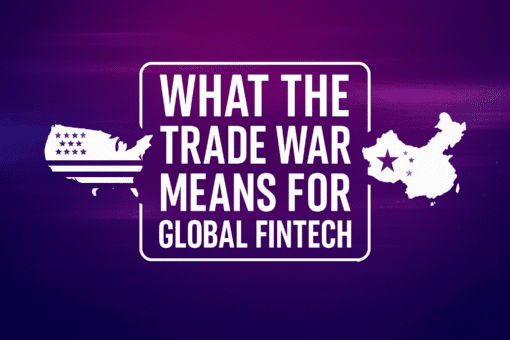The intensifying trade tensions between major economies, particularly the United States and China, are reshaping industries far beyond manufacturing and commodities. Financial services, and fintech specifically, are increasingly caught in the crossfire. As the trade war expands into technology, data, and finance, global fintech finds itself facing new challenges, regulatory pressures, and unexpected openings.
Understanding what the trade war means for fintech requires looking beyond tariffs. The battle is not just about goods, but about infrastructure, influence, and the future of digital commerce. For fintech founders, investors, and policy-makers, this environment demands agility, creativity, and a new strategic outlook.
Rising Barriers to Cross-Border Expansion
One of the first effects of the trade war on global fintech is the increase in barriers to international expansion. In the past, fintech companies could often move across borders relatively freely, building customer bases and partnerships without heavy political risk.
Now, tighter scrutiny on cross-border data flows, payment systems, and investment is becoming the norm. Countries are introducing new data localisation laws, restrictions on foreign ownership in financial services, and security reviews for inbound fintech investment.
For example, Chinese fintech giants like Ant Group and Tencent have faced growing difficulties expanding into the US and Europe. Meanwhile, American fintechs encounter obstacles entering markets aligned with China’s economic sphere. Startups from smaller economies may find themselves forced to choose sides, limiting their addressable markets.
Increased Emphasis on Localisation and Compliance

To navigate the geopolitical divide, fintech companies must invest heavily in local compliance, partnerships, and infrastructure. Operating a global platform from a single hub is increasingly risky.
Instead, successful fintechs are building localised models: setting up regional subsidiaries, forming joint ventures, and aligning closely with local regulatory frameworks. Open banking standards, digital ID requirements, and licensing regimes differ sharply between jurisdictions, requiring granular operational adjustments.
This localisation trend benefits regional fintechs and infrastructure players that can offer expertise in local compliance and integration. It also makes finance more fragmented, reducing the dominance of single platforms across multiple markets.
Supply Chain Disruptions Reach Financial Services

The trade war’s impact on physical supply chains has well-documented effects, but the same dynamics are playing out in digital financial infrastructure. Payment rails, cloud services, cybersecurity providers, and core banking software are increasingly seen as strategic assets.
Governments are encouraging or mandating the use of domestic infrastructure providers for sensitive sectors, including finance. This can affect fintech companies relying on cross-border cloud providers, international payment processors, or foreign-owned APIs.
As a result, fintechs must assess their vendor dependencies more carefully, diversify critical infrastructure providers, and prepare for more stringent localisation demands even at the technology stack level.
Trade War: Opportunities in Emerging Markets

Despite the challenges, the shifting global landscape also creates new opportunities for fintech. Emerging markets in Southeast Asia, Latin America, Africa, and the Middle East are less entrenched in either major economic bloc and present fertile ground for growth.
Countries in these regions are eager to modernise financial systems, promote digital inclusion, and attract fintech investment. Cross-border payment solutions, alternative lending platforms, digital wallets, and SME finance platforms are particularly in demand.
Fintech companies able to adapt to diverse regulatory environments, partner locally, and deliver value to underserved markets may find that de-globalisation in the traditional sense does not stop global growth in fintech. It merely reroutes fintech services.
Trade War: Fintechs Must Adapt

Another major consequence of the trade war is the acceleration of digital sovereignty initiatives. Governments increasingly view control over financial data, payments infrastructure, and consumer identity as matters of national security.
This has broad implications for fintech strategy. Open banking initiatives may become more protectionist. CBDC (Central Bank Digital Currency) projects are gaining urgency. Global stablecoin initiatives face intense regulatory hurdles.
Fintechs need to future-proof operations by designing architectures that respect jurisdictional boundaries and by building strong frameworks for data protection, compliance, and interoperability.
The age of frictionless global expansion for fintech is over. In its place, a more complex, multipolar financial landscape is emerging, shaped by geopolitics as much as by technology.
Understanding what the trade war means for global fintech is not about predicting short-term tariffs, but about recognising a deeper realignment of financial infrastructure, governance, and opportunity. Those companies that stay agile, invest in local trust, and build flexible, resilient models will continue to thrive. Even in a divided world.

